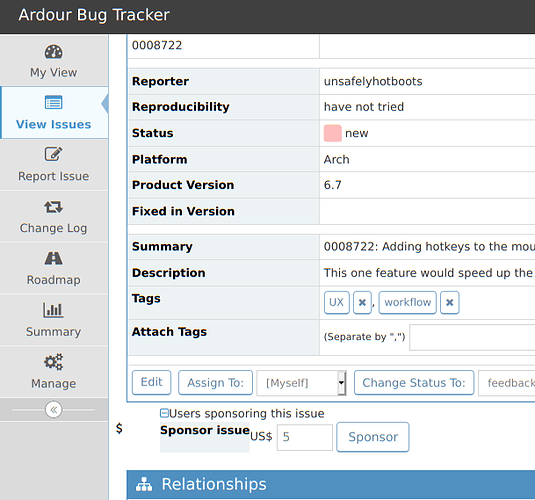I’ve been reading this debate over the last few days, and I get why Paul is upset. The GPL is an amazing thing for software - it’s pushed software ahead so far, but there are edge cases like the initial poster that are hard to swallow when your project is already difficult to sustain.
The 4$ a month I pay to subscribe is the best 4$ I pay per month. Consistently, release after release, I am pleasantly surprised by the additions, the bug fixes, and the general thoughtfulness put into Ardour as a tool to accomplish a variety of audio ends. I’ve mixed an entire album, edited podcasts, and also used it just as a shell to goof off and play Autumn Leaves to a drum track - it does all of those extremely well. And like Paul, I think it’s super shitty of the person who posted that they took the binaries and posted them to some archive site.
With that said, I also think the people who are going to the archive site are not going to ever go through the paytunnel - it’s shitty to make it easier for them, but the license agreement is such that if a person downloads the binaries from there, they are on their own for learning to use and supporting the program. As soon as they reveal they downloaded it from there, we as a community can say, “Dude, when you go pay at least a dollar to support the project, come back and talk,”
And yes @BethHarmon, I agree with your point that it makes us an exclusive club, but disagree with the idea that it’s fundamentally a bad thing. My universal experience on the internet is exclusive clubs behind a paywall - no matter how low or high - are significantly more curated, less toxic, and more helpful than any Reddit or Zuckerface product. I’m okay with having an ‘in’ club that has a 1$ entry fee.
I understand a dollar here isn’t the same as it is in ZImbabwe or India - but I also think that’s exactly where there’s a version of Ardour, packaged in the Linux distros, for those people. I guarantee if they cannot afford the 1$, they are also probably not using Windows or buying an Apple product to run it on, and therefor, are not exactly running afoul of the paytunnel like the OP did.
Don’t be deterred by the haters Paul and Robin. This project has inspired me to start learning C++, so that someday I might be able to at least contribute a little bit. It’s done amazing things for many many others.
EDIT: I never addressed the bug bounty issue. I think it’s a terrible idea, and I’m glad it’s so subtle I never noticed it even as I’ve posted ideas and bugs to the Ardour tracker. I’d much rather let the devs look at their project and let them decide what the best path forward is for it, than to try to browbeat them with bribery on their bug tracker to taking on my pet issue just because I will put 20$ towards it.

 ). That’s why its easily worth $1 to have someone build it for you in my opinion. (And after all, how much really is $1 in the context of all the other equipment you also need in order to actually make use of the software? )
). That’s why its easily worth $1 to have someone build it for you in my opinion. (And after all, how much really is $1 in the context of all the other equipment you also need in order to actually make use of the software? )